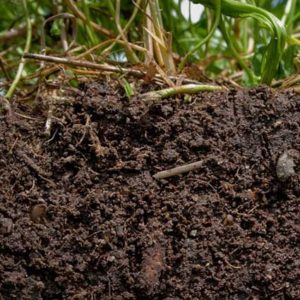In an earlier post, I discussed the importance of maintaining a healthy microbiome – i.e., the population of microscopic organisms that live symbiotically in our small intestines and colons. They aid in digestion, help regulate metabolism and hormone levels, support immune function, protect the gut lining, and ward off harmful microorganisms. Diversity is the hallmark of a healthy microbiome with no more than 15% of its residents deemed potentially harmful.
When our microbiome is out of balance, we are far more susceptible to chronic illness and disease. According to Dr. Josh Axe, author of Eat Dirt: Why Leaky Gut May Be the Root Cause of Your Health Problems, a number of factors compromise our microbiome:
- A poor diet characterized by excess sugar and nutritionally bankrupt processed food
(Note: A test subject’s biodiversity dropped by 40% after eating a diet based wholly on fast food for 10 days!) - Dietary gluten that triggers production of zonulin, a hormone that causes the tight junctions of our gut lining to loosen up
- Overuse of antibiotics and antimicrobial sanitizers which kill off good bacteria with the bad
- Environmental toxins
- Stress
 Microbes die off and must be replenished. To nourish the good microbial population, we need regular exposure to the soil-based microbes found in dirt and other plant life. While it isn’t necessary to serve ourselves daily spoonfuls of dirt, it certainly doesn’t hurt to leave a little bit of dirt on the fruits and vegetables we consume. Microexposures reinforce good bacteria and help our bodies respond appropriately to pathogens. Those of us who own dogs and cats get a little dose of dirt every time we handle their dirty paws!
Microbes die off and must be replenished. To nourish the good microbial population, we need regular exposure to the soil-based microbes found in dirt and other plant life. While it isn’t necessary to serve ourselves daily spoonfuls of dirt, it certainly doesn’t hurt to leave a little bit of dirt on the fruits and vegetables we consume. Microexposures reinforce good bacteria and help our bodies respond appropriately to pathogens. Those of us who own dogs and cats get a little dose of dirt every time we handle their dirty paws!
As an aside: I’ve always noshed on baby carrots at parties to keep me away from higher calorie snack foods. Until reading this book, it never occurred to me that packaged carrots tend to be bathed in chlorine to increase their shelf life. Chlorine kills bacteria in the gut!
Other than becoming a pet owner, what dietary and lifestyle practices support the cultivation of a healthy microbiome?
Dr. Axe favors getting back to nature. A few simple lifestyle adjustments might include: (i) walking barefoot on the ground daily; (ii) working in the garden; (iii) showering with water and no soap a few days per week to help maintain beneficial microorganisms on the skin; (iv) washing hands with water and certified organic therapeutic oils (e.g., tea tree, orange, melaleuca, rosemary) or Dr. Bronnor’s Pure Castile Soap; and, (v) swimming in the ocean.
As for food, Dr. Axe offers the following recommendations:
- Eat probiotic rich foods such as kefir, yogurt, and fermented vegetables.
(Note: Commercially prepared sauerkraut may or may not have been fermented; it could just be cabbage seasoned with vinegar.) - Drink raw, fermented, organic goat or sheep milk and cheese.
(Homogenization destroys essential enzymes and probiotics as well as oxidizes fats and creates free radicals.) - Substitute coconut flour or almond flour for wheat-based flour.
- Use extra virgin coconut oil for cooking and ghee, olive oil, or flaxseed oil for dressings, et al.
- Use bone broth and collagen powder to repair the gut’s mucosal lining and provide a rich source of minerals that the body can readily absorb.
- Avoid sugar and artificial sweeteners.